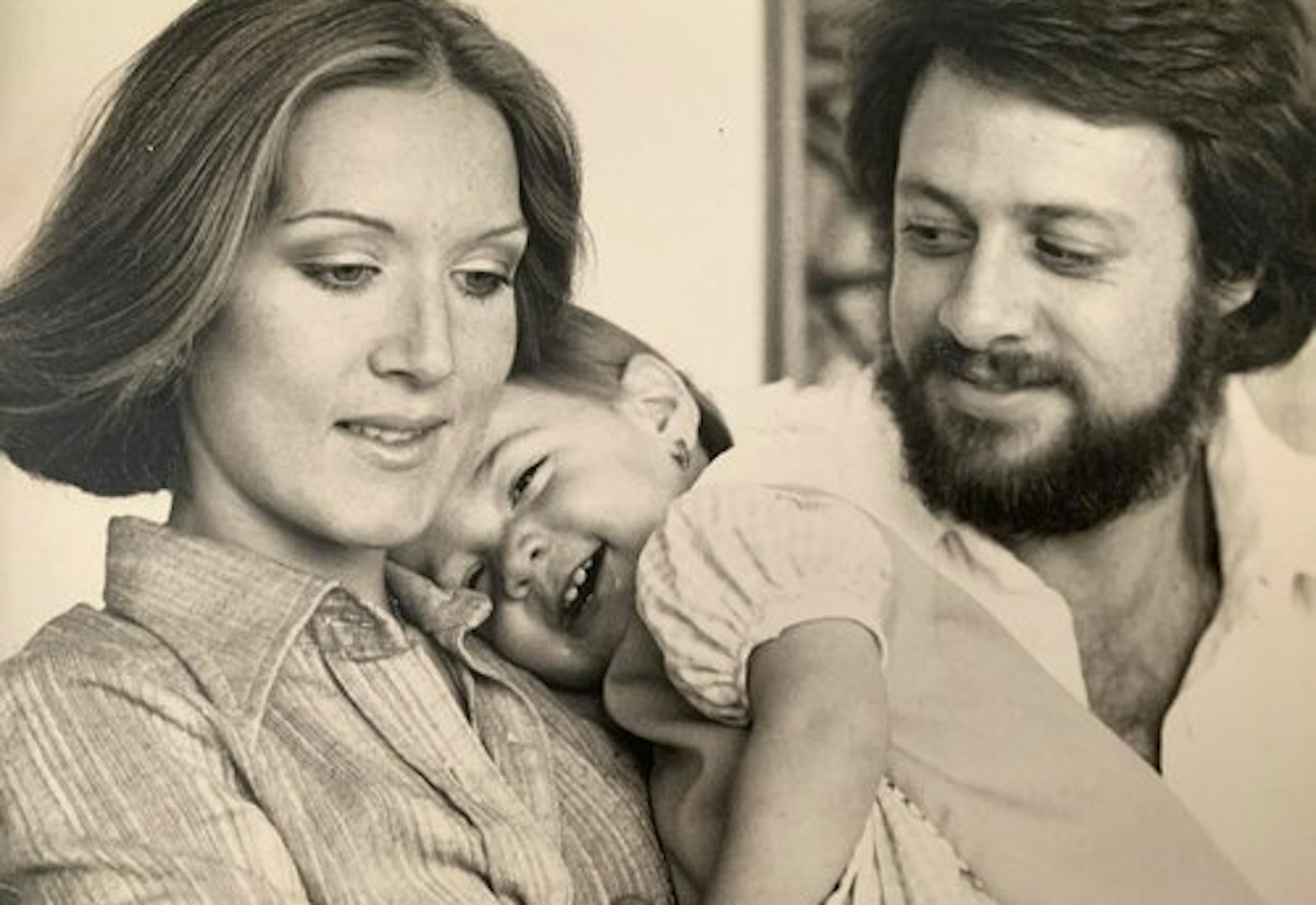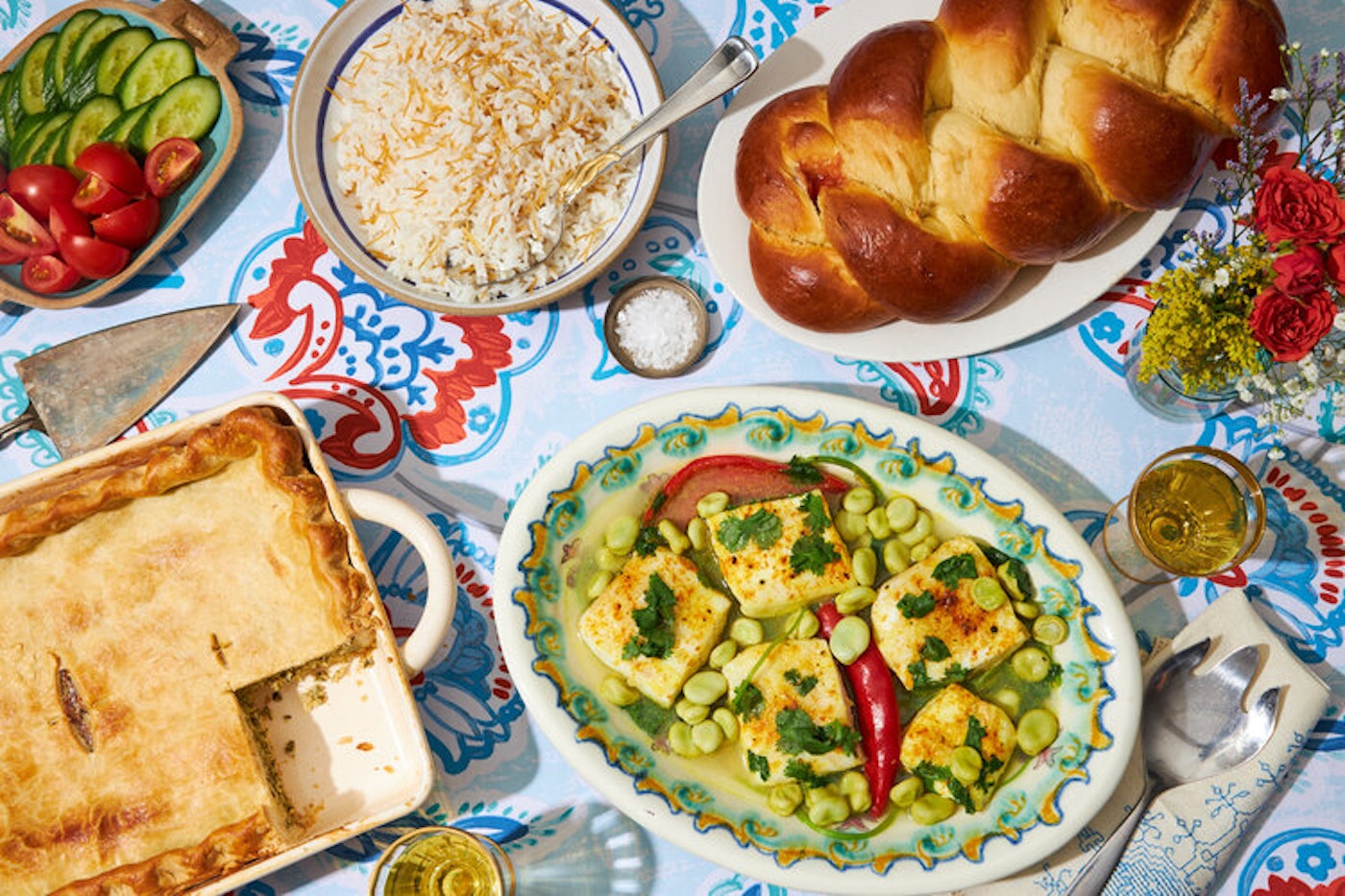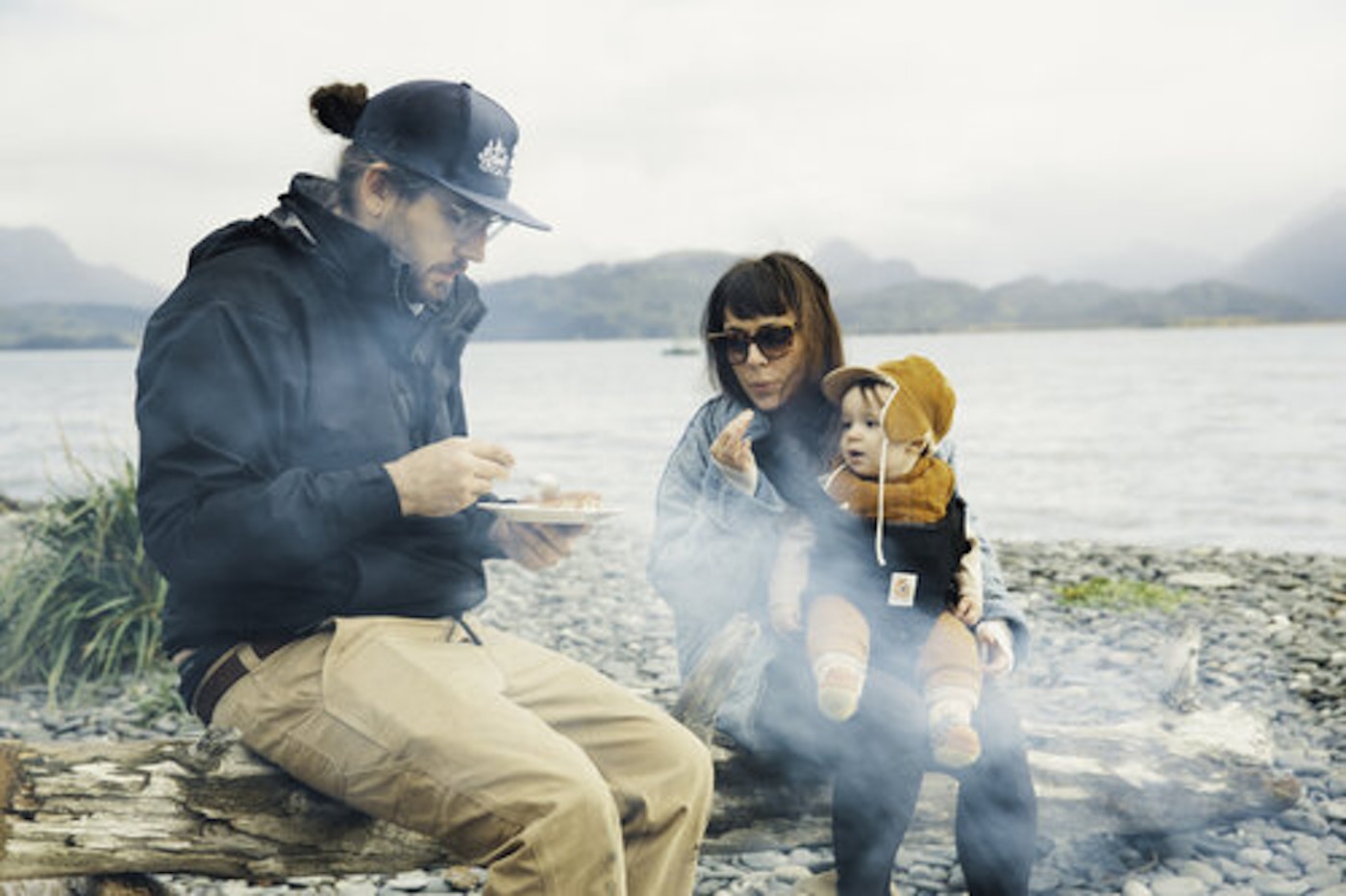Shared by Monica Haim

Writer and film producer Monica Haim calls Homer, Alaska, a town of 5,700 people, that sits on a peninsula near the Gulf of Alaska, home. It’s 5,000 miles and a world away from Miami where she grew up in the heart of the Colombian-American Jewish community. Unable to see her family during the pandemic, the foods, recipes, and stories of their community have kept her sane, she says. “The one thing I can do to ease that heartbreak on a daily basis is to cook the food that takes me home.”
She longs for a Shabbat meal of guava-filled challah, Moroccan spicy fish, arroz con fideos or rice with vermicelli noodles from a Syrian “aunt,” a spinach and cheese pie from the mother of her best friend, and her own mother’s torta de datiles or date cake. The recipes make up a meal that belongs to the community rather than a single family. This is my “bring me home meal... bring me to my people, bring back my tribe meal — in the middle of rural Alaska,” Monica says.
The Colombian Jewish community traces back to the 16th century as Sephardi Jews fled Spain during the Inquisition. During the 20th century, the community grew with Jews migrating to Colombia from North Africa, Syria, what was the Ottoman Empire, and later from Eastern Europe. Monica’s family came to Colombia by way of Poland and Russia on her mother’s side of the family and Turkey, Iran, and Syria on her father’s side.
“My grandmother Olga was born there,” she explains. She spoke Yiddish and Spanish and came from a family that brought yeast to Colombia to open a bakery. “She was the most Yiddishkeit type of grandmother you could ever imagine, but she was also firmly rooted in…. Afro-Colombian culture.”
Monica was born in Bogata, but in the 1980s, like much of the Jewish community in Colombia, her family moved to Miami seeking a safer life and a place to be Jewish. “The same way we created community in Colombia…. we had to replicate that in Miami,” she adds. Friends and families live close to one another and formed a close knit community, in part, through the flavors of home.
When Monica was little, she would go to Shabbat dinners at the homes of extended family and friends in her pajamas and then sleep over at her grandparents’ home. At each table, there was a specialty of the house, but there were also staples served across the community like rice, salad, and guava challah, “which is a very specific Miami thing,” she adds.
In Miami, “We found our groove by sticking together and perpetuating this tradition.” Here, “recipes were mingled and shared like social currencies between these families.”
Growing up and even as a young adult, Monica rarely made these recipes. That changed when she and her husband, a third-generation fisherman who owns the Wild Alaskan Company, moved to Homer at the start of the pandemic. “I really learned to cook this year in quarantine,” Monica explains. She’s cooked to feel closer to Miami and to feed her family in Alaska where she’s a mom to a little boy. For Monica, “giving those flavors to my baby for the first time, continues a cycle that can’t be broken by distance, which to me is very much the Jewish story.”

